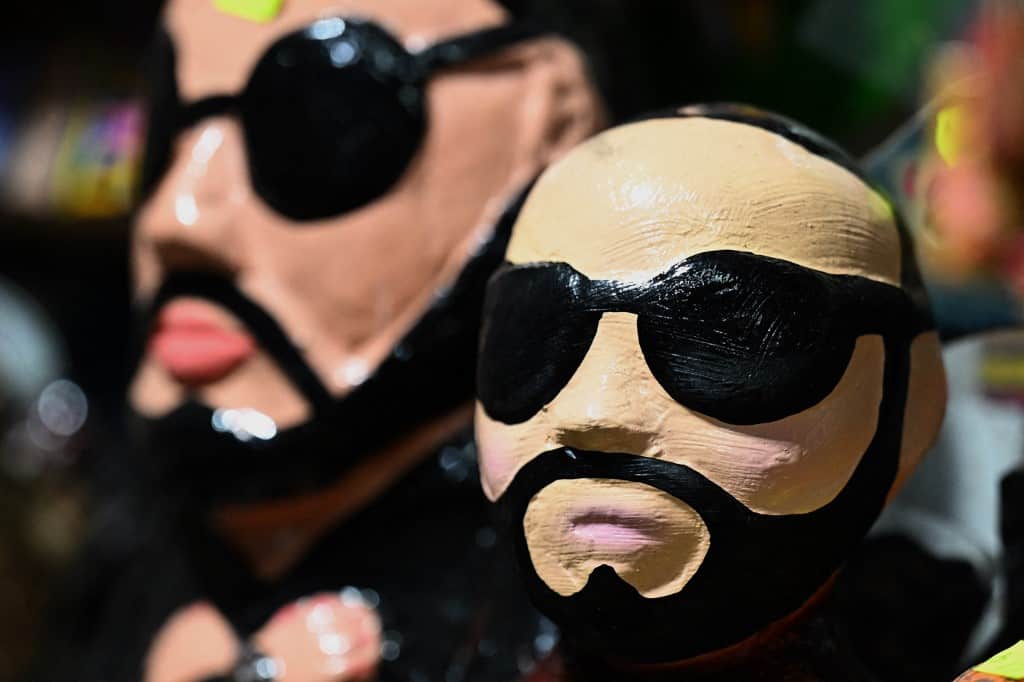Whenever a case of criminal violence shakes any Latin American country, a voice jumps up in the streets, in political forums or on social media: “What we need here is a Bukele!”.
The president of El Salvador, Nayib Bukele, who won in 2019 with 53% of the vote, has his reelection next Sunday practically secured according to the polls – whose figures cannot be published on the eve of the elections – thanks to his offensive against the gangs that terrorized the country.
But his “iron fist” policy is criticized by human rights activists as it relies on a state of exception in force since 2022 that allows arrests without judicial order and gives rise – they assure – to arbitrary detentions, abuse and even torture.
However, the “Bukele effect” is spreading in Chile and Argentina, through Peru, Ecuador, which faces a fierce onslaught from drug trafficking, Honduras and the once peaceful Costa Rica.
With the support of 90% of Salvadorans, Bukele is the most popular ruler in the region, according to the 2023 Latinobarometer.
Why is his iron fist so popular in the region?
Bukele, experts consulted, is an expression of rejection of traditional politics, of disenchantment with democracy and the loss of faith in institutions that do not solve problems of insecurity, poverty and corruption, serious in Latin America.
“It is the sclerosis of the political class (…) which has completely moved away from society and its demands and needs,” said Michael Shifter, an analyst at the Inter-American Dialogue, based in Washington.
Currently, 48% of Latin Americans support democracy as a political system, 15 points less than a decade ago, Marta Lagos, said director of the NGO Latinobarometer, based in Chile
“Democracy has not given people answers. When it comes to security, Latin Americans like authoritarian narratives. We have tried different models and none successfully,” said Ana María Méndez, director for Central America of the Washington Office on Latin American Affairs (WOLA).
For Christophe Ventura, research director at the Institute of International and Strategic Relations (IRIS), “Bukele is the product of history.” “Latin America faces the same problems as El Salvador,” he noted.
What impact does his reelection have on Latin America?
For Ventura, it will “reinforce” the model of “authoritarian populism” in a Latin America “facing a multifactorial crisis and a deterioration of social cohesion.” It will favor “the advance towards this type of regime,” he said.
“His victory shows that today’s electorate is willing to reward leaders who respond to their fundamental needs” even at the expense of “democracy,” said Tamara Taraciuk, from the Inter-American Dialogue. “This is part of a broader pattern that is happening in the region,” she stressed.
Méndez and Taraciuk point out that leaders of various ideologies are coming to power through the ballot box and then apply the “same authoritarian script”: they take control of the powers of the State and reform the Constitution to stay in power .
Lagos commented, for her part, that the “streak of alternations in power occurs due to dissatisfaction” and, in the case of El Salvador, “although with authoritarianism,” Bukele has solved the security problem and “his country and the whole region applauds”.
How sustainable is a model like Bukele’s?
For Lagos, however, Bukele’s model “will crumble as the population’s expectations go beyond security,” as poverty and social inequality persist. “The honeymoon will end,” she predicted.
“There is a somewhat idealized vision of what Bukele has done. But you have to see the whole movie. The Latin American who applauds him does not know all the living conditions in El Salvador,” she asserted.
For Ventura, it is difficult for the iron fist policy alone to withstand “the power of the dynamics of drug trafficking and crime, which are regional.”
“He won’t be able to keep putting people in jail” forever, he said, referring to the 75,000 alleged gang members detained under the state of exception.
Shifter noted, for his part, that very popular leaders like Hugo Chávez in Venezuela (1999-2013) or Alberto Fujimori in Peru (1990-2000) later turned out to be “a disaster.”
“Bukele has achieved something at an acceptable cost for most of the country,” but “it is only the first chapter of this story (…), it may be the exception to the rule in Latin America, but things can take a turn for the worse,” he added.
Being even more popular than Pope Francis, according to Latinobarometer, analysts do not rule out that Bukele, 42, with all the powers of the State on his side, will later seek indefinite reelection.






